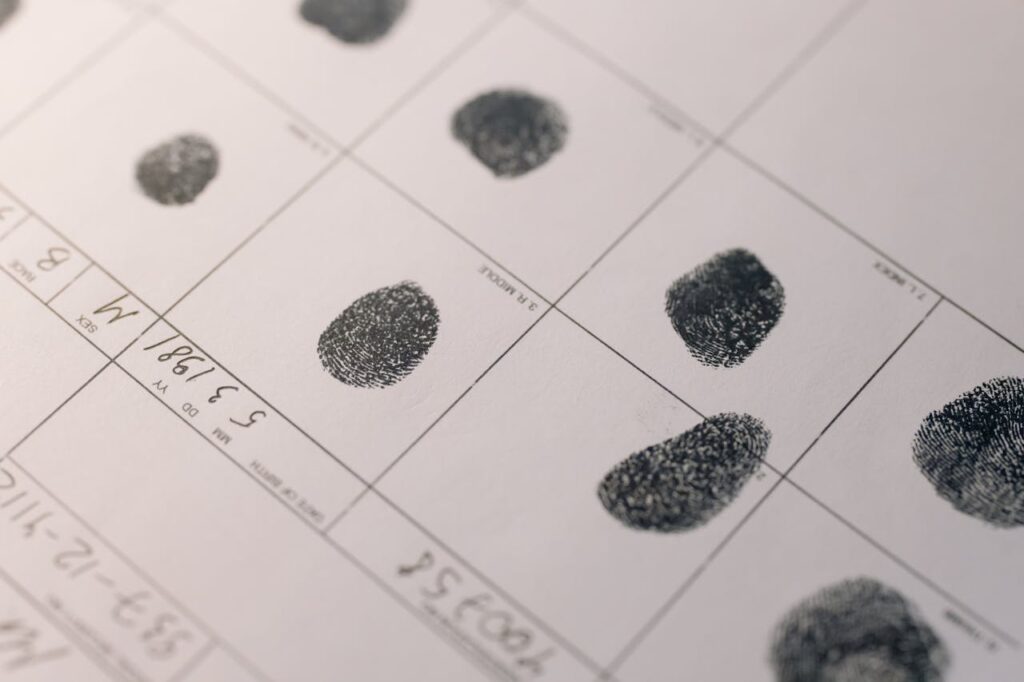Key takeaways
- Forensic science profession is advancing and becoming more sophisticated as new technologies emerge and psoe challenges in criminal justice systems.
- Forensic scientists are equipped with essential skills and understanding of issues like DNA, chemistry, crime scene investigation, and so on.
- A degree in forensic science prepares students with critical skills such as data analysis and legal framework.
- Forensic science careers bridge the gap between scientific evidence and criminal justice, therefore, a strong legal understanding is required.
- The best colleges for a degree in forensic science are the pens with good accreditations, alumni reputation, strong faculty, and good campus life.
- The list of best colleges for forensic science degree include Texas A&M University, Penn State University, and Ohio University.
- A forensic science degree poses challenges such as tackling complex problems in high-pressure situations.
Crimes, legal proceedings, and law enforcement are all significantly dependent on forensic science experts. This particular field stands at the crossroads of science and the justice system. This interdisciplinary field applies scientific principles and techniques to investigate crimes, analyze evidence, and support legal proceedings.
From examining DNA at a crime scene to uncovering digital footprints in cybercrime, forensic science encompasses a vast array of specializations and methodologies that are crucial in modern law enforcement and legal systems.
So, as technological advancements grow and human lives evolve, crime and criminal justice also evolve. Needless to say, there is a growing demand for professionals specializing in forensic science fields, such as digital forensics. However, this field is not without its challenges. Forensic scientists must not only possess technical expertise but also the ability to communicate findings effectively, often in high-pressure legal settings.
In order to achieve that perfect balance between knowledge, skills, adaptability, and professionalism, a degree in forensic science is the ideal go-to. This comprehensive guide explores everything you need to know about pursuing a career in forensic science. From understanding the field’s core principles to delving into degree requirements, coursework, specializations, and career prospects, this article offers a detailed roadmap for aspiring forensic scientists.
What is forensic science?

Forensic science is a scientific method of supporting numerous legal and law enforcement processes. It is the collection and analysis of physical evidence that supports legal proceedings. The Most important part about forensic science is that it is used in various disciplines for various applications. For example, forensic science is a common practice in the anthropology discipline, exploring and analyzing cultural and historical evidence.
Furthermore, this is a technical field that requires a robust understanding of many terminologies, practices, and even criminal expertise. Additionally, forensic scientists are often needed in court proceedings and have to constantly collaborate with other professionals such as lawyers, historians, storytellers, press, and much more.
One of the most popular outcomes of forensic science is conducting autopsies. On the contrary, it is a possible outcome of getting a forensic science degree, but not the only one. In fact, forensic science applications and uses revolve around jobs such as DNA collection and analysis, crime scene evidence collection, digital forensics, and much more.
What is a bachelor’s degree in forensic science?
Now that you know what exactly is forensic science, this will help you better understand the details of a forensic science bachelor’s degree. Essentially, this degree prepares students with skills and knowledge related to evidence analysis and collection. Moreover, there are numerous specializations or areas of focus within an undergrad forensic science degree. These specializations allow you to narrow down the scope and focus on a particular field.
An important part of your college planning is selecting the right specialization. Some colleges refer to specializations as areas of emphasis or concentration. Firstly, this specialization plays an integral role in determining the kind of jobs you would be eligible for. Secondly, specializations help you focus on key areas and skills that help excel at work. Lastly, specializations will allow you to network with relevant peers and teachers to get industry expertise.
In addition to this, there are multiple colleges offering a bachelors program for forensic science. However, every college has a different program coursework and requirements. Typically, colleges include multiple teaching and learning methods in the program, such as taking written exams. So, without further ado, let’s take a look at the various program details and other details you might be interested in.
Course work details
As we mentioned earlier as well, the coursework for a forensic science program varies significantly. Therefore, it’s important to explore the various courses and program work that is offered. To get you started, here is a list of the most common courses found in a forensic sciences major.
|
|
Other than courses, colleges may also require other important coursework such as written assignments and so on. Typically, the following teaching methods are used to ensure optimum learning:
- Written exams
- Online assignment submissions
- Class assignments
- Group projects
- Class presentations
- Class participation
- Research papers and reports
- Final project, thesis, or capstone
- Quizzes and surprise tests
- Internships and on-campus work
- Field trips and assignments
Specializations
Moving on, the most important aspect is the specializations. You don’t want to miss out on these. So, explore the following specializations and see what each offers so you can make an informed decision. Here is what you need to know:
Forensic biology
Forensic biology is a mainstream and most commonly chosen specialization by students in the forensic sciences degree. Firstly, this specialization is all about analysis of biological materials, such as DNA, blood, and bodily fluids, to identify individuals and link them to crime scenes. It is heavily reliant on molecular biology and genetics. Moreover, job roles with forensic biology may be available in fields like legal cases, criminal investigations, and DNA analysis.
Toxicology
Then on the list is toxicology. This field emphasizes on detecting and analyzing drugs, alcohol, and poisons in biological samples to understand their role in crimes or deaths. Additionally, toxicology specialization is a very specific study of drugs, therefore, requires really focused learning and skill sets. This field plays a critical role in criminal investigations, medical examinations, and legal cases.
Forensic pathology
For a streamlined and narrow scope in your career, a forensic pathology degree is great. It is a thoroughly specialized branch of forensic science focused on determining the cause and manner of death by examining deceased individuals. Forensic pathologists perform autopsies to identify injuries, diseases, or toxins that contributed to death, often working closely with law enforcement and medical examiners to solve criminal cases or clarify circumstances surrounding unexpected or unexplained deaths.
Forensic anthropology
Anthropology is a specialized field altogether. However, for an interdisciplinary approach, you may opt for a major in forensic anthropology and get the best of both worlds. Particularly, this specialization focuses on analyzing human skeletal remains to determine identity, age, sex, and cause of death, often in cases of unidentified or decomposed bodies. It aids in criminal investigations, disaster victim identification, and archaeological research.
Explore anthropology undergraduate degree here!
Crime scene investigation
Further, there is also crime scene investigation, a core and very important specialization within the forensic science field. This field focuses on examining and documenting crime scenes to gather physical evidence used in solving crimes. It is the foundation of the investigative process, as the quality of evidence collected at a scene can significantly impact the outcome of criminal cases. Crime scene investigators play a crucial role in bridging the gap between the scene of the crime and the forensic laboratory, ensuring that evidence is preserved and analyzed correctly.
Digital forensics
As cyber crimes are expanding and becoming more advanced, there is an increase in the need for more expertise and tools that can cater to digital crimes. Therefore, digital forensics is the specialized field of extracting, analyzing, and managing digital data related to cybercrimes. Digital forensics is essential in today’s technology-driven world, bridging the gap between advanced digital systems and the pursuit of justice.
What do forensic scientists do?

In particular, forensic scientists are an integral part of the criminal justice system by analyzing physical evidence to help solve crimes and ensure justice is served. Their work combines science, technology, and investigative techniques to uncover critical information from evidence collected at crime scenes, in laboratories, or through digital analysis.
Furthermore, the key responsibilities of forensic scientists is to:
- Examine materials such as fingerprints, DNA, blood samples, weapons, or digital data
- identify links between suspects, victims, and crime scenes
- use specialized tools and methodologies to process and analyze evidence
- Document data for detailed reporting
- contribute to disaster victim identification
- Contribute to legal disputes
Overall, forensic science is a field that offers the scientific foundation to justice and law enforcement. So, lets jump in to the details of common forensic science jobs you may be eligible for:
List of common forensic scientist jobs
Some job positions are more common than others. The following list include positions and jobs for forensic science graduates found in law enforcement agencies, forensic laboratories, medical examiner offices, and private sector companies across the United States. Job availability and specific titles may vary by location and organization.
In addition to this, we strongly recommend exploring job boards like LinkedIn and Indeed to stay on top of industry trends and changes. These platforms regularly list opportunities for forensic science professionals at various career stages.
|
|
Where to get a forensic science degree from?
Now that you know what you can expect from a forensic science degree and whether it suits your needs, you must not shy away from exploring the colleges. The best colleges with forensic science majors are the ones that offer benefits and features like:
- High and reputable accreditations
- Good and strong faculty
- A reputable alumni profile
- Good college facilities like labs
- College support system like career facilitation
- Campus life with students clubs and organizations
So, to make an informed choice about the ideal college for your forensic science degree, make sure you go through the aforementioned factors. Here is a list of best forensic science colleges:
Pennsylvania State University (Penn State)
For hands-on experience learning forensic science, the bachelor’s program at Penn State University is the best choice. Firstly, the program is integrated with productive coursework that includes amazing college facilities like labs. Moreover, the college engages students in advanced research and projects that allowthem to prepare for real-life applications. The program emphasizes practical skills through mock crime scenes and laboratory work, preparing students for careers in crime laboratories, crime scene investigation, and related forensic fields.
George Mason University
For a theoretical understanding of forensic science along with practical work experience, George Mason University is a great option. Additionally, it offers the chance to continue higher education and get an MS in the related field. The program features state-of-the-art facilities, including a Crime Scene House and a Forensic Science Research and Training Laboratory, providing students with hands-on training in realistic settings. From Research-driven coursework to notable faculty members, this college has a lot to offer.
Texas A&M University
Investigative forensic science is a popular choice among college students. Therefore, if you are interested in an investigative degree, Texas A&M University is the ideal option. This program covers everything from basic to advanced level such as ecology and DNA analysis. Moreover, you can continue in higher education and get a master’s degree which is essential for rapid career growth. The curriculum includes courses in chemistry, physics, statistical methods, crime scene investigation, forensic soil science, principles of law, and applied forensic entomology.
Alabama State University
A specialized training program is a must-have for careers in forensic science. Therefore, we strongly recommend Alabama State University for a well-rounded and comprehensive undergrad program. Graduates are prepared for careers as crime scene investigators, forensic scientists, toxicologists, and detectives, with opportunities to work at local, state, or federal levels. Additionally, students can participate in the Forensic Science Club, enhancing their educational experience through hands-on activities.
Ohio University
For those interested in forensic chemical science, Ohio University has a lot to offer. With this degree, you will be eligible for rewarding job opportunities in labs and chemical forensic studies. The program prepares students for careers in crime laboratories, law enforcement agencies such as the FDA, OSHA, and EPA, or for graduate studies in forensic chemistry, forensic science, or analytical chemistry. Notably, the forensic chemistry program is accredited by the Forensic Science Education Programs Accreditation Commission (FEPAC).
University of New Haven
The biggest benefit of getting a college degree in forensic science or other subjects is that it prepares you for the relevant modernizations and technological advancements in the industry. Therefore, the University of New Haven program emphasizes the integration of science and technology in legal contexts, training students to analyze evidence for criminal and civil cases. Recognized as one of the most respected forensic sci programs in the country, it is endorsed by the Forensic Science Education Programs Accreditation Commission (FEPAC).
Is a forensic science degree worth it?

Just like any other college majors, a forensic science degree is also suitable for a particular type of student. Therefore, to decide whether or not a degree in forensic science is worth it or not depends largely on what are your interests, strengths, and aspirations.
Furthermore, this degree offers a unique blend of science and criminal justice, preparing graduates for roles in law enforcement agencies, crime labs, medical examiner offices, and private industries. However, its value depends on factors like job market demand, specialization, and individual aspirations.
So, here is a list of reasons why a degree in forensic science may be worth it:
- It equips students with interdisciplinary skills. So, a broad skill set, including biology, chemistry, data analysis, and critical thinking, makes them versatile professionals.
- As technology evolves, the need for forensic experts, especially in digital forensics and DNA analysis, continues to rise.
- With this degree, you will be able to directly solve crimes and contribute to delivering justice, offering meaningful and rewarding careers.
On the other hand it does pose some challenges and roadblocks that you must consider before starting out. In particular, these challenges may include things like:
-
- Highly competitive field with numbers of graduates already existing in the job market.
- Pay scale for entry-level jobs and fresh graduates may not be as high as you wouldn’t want it to be.
Overall, a forensic science degree has some important benefits to offer to those who are interested in this particular field. Additionally, a forensic science degree is worth it for those passionate about the intersection of science and criminal justice, willing to navigate a specialized field, and eager to make a tangible impact on society.
Enroll in a forensic science degree college now!
In conclusion, forensic science is a dynamic and highly specialized field that bridges the gap between science and the criminal justice system. Moreover, it truly empowers professionals to analyze evidence, solve crimes, and contribute to justice in meaningful ways. Its broad scope and range of specialties make it a good choice for those interested in problem-solving and non desk job professions.
From uncovering biological traces to navigating the complexities of digital forensics, the opportunities within this discipline are as diverse as the challenges it addresses.
Additionally, a forensic science bachelor’s degree from a good college provides a strong foundation for aspiring forensic experts, offering a mix of interdisciplinary coursework, hands-on training, and specialized knowledge. Students can tailor their education to their interests, exploring areas such as toxicology, forensic biology, or digital forensics.
